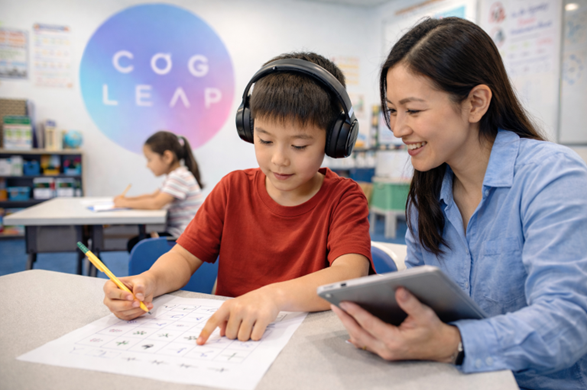How Exercise and Auditory Processing Can Rewire the Brain: The Science Behind HFS®
- webyouth72
- Jul 10, 2025
- 3 min read
It’s a phrase you may have heard before:
“Exercise changes the brain.”
But what does that really mean? And how does that relate to helping children with learning challenges like ADHD, autism, or dyslexia?
At Cogleap Centers in Irvine, Diamond Bar, and San Jose, we work with parents every day who are searching for more than tutoring or talk therapy. They’re looking for a scientific, results-driven approach to unlocking their child’s potential. That’s exactly what HFS Training was built to do—through a powerful combination of skill-based exercises and auditory processing activities.
Here’s how (and why) these two pillars are so effective.

1. How Physical Exercise Impacts Brain Function
You already know exercise is good for the body—but it’s also a proven tool for cognitive development, especially in children.
Research shows that physical movement stimulates the release of brain-derived neurotrophic factor (BDNF)—a protein that promotes the growth and survival of neurons. Think of BDNF as “fertilizer” for your brain. When kids move, jump, balance, or coordinate their limbs, their brains become more adaptive and plastic—better able to learn, retain, and process information.
Key Benefits of Movement-Based Cognitive Training:
Improved attention and focus (critical for ADHD)
Faster neural communication (boosting processing speed)
Stronger memory and retention
Enhanced executive function (planning, organizing, and self-control)
🧠 Fun Fact: Harvard studies show that aerobic activity increases the size of the hippocampus, the brain area involved in learning and memory.
That’s why HFS® incorporates targeted physical exercises—not just random movement, but carefully designed activities that engage core cognitive systems like balance, spatial awareness, and visual tracking.
2. The Power of Auditory Processing in Learning
Many children struggle with listening comprehension, speech, or following instructions—not because they aren’t trying, but because their brains aren’t processing sound efficiently.
Auditory processing is how the brain makes sense of the sounds we hear. It’s different from hearing itself. Children with auditory processing difficulties might:
Mishear words or instructions
Struggle with reading or spelling
Have trouble filtering out background noise
At Cogleap, our HFS® program includes specialized auditory exercises that train the brain to:
Distinguish sounds more accurately
Improve phonemic awareness
Strengthen the pathways between hearing and understanding
These improvements ripple outward—helping kids not just in school, but in social situations, confidence, and emotional regulation.
🎧 Scientific Insight: According to studies published in Frontiers in Neuroscience, auditory training improves the brain’s temporal processing and language-related neural networks.
Why HFS® Cognitive Training Works
HFS®—short for Hope Focus System—was developed to combine these two evidence-based tools into a comprehensive cognitive training program. By pairing skill-based physical exercises with auditory processing activities, HFS® targets the root causes of cognitive delays—not just the symptoms.
This approach has been life-changing for many families in:
Irvine, CA: where busy parents find a reliable partner in their child’s learning journey
Diamond Bar, CA: where our center supports kids struggling with focus and executive function
San Jose, CA: where tech-minded families love the science-first approach of HFS®
Let’s Build a Better Future—One Brain at a Time
At CogleapUS.com, we don’t believe in one-size-fits-all solutions. Every child is different—and that’s why the HFS® program is personalized to meet their needs using a combination of proven scientific strategies.
If you’re a parent near Irvine, Diamond Bar, or San Jose, and you’re searching for a research-backed alternative to tutoring, we invite you to explore the transformational power of HFS®.
👉 Schedule a free consultation or learn more at Cogleap.com

